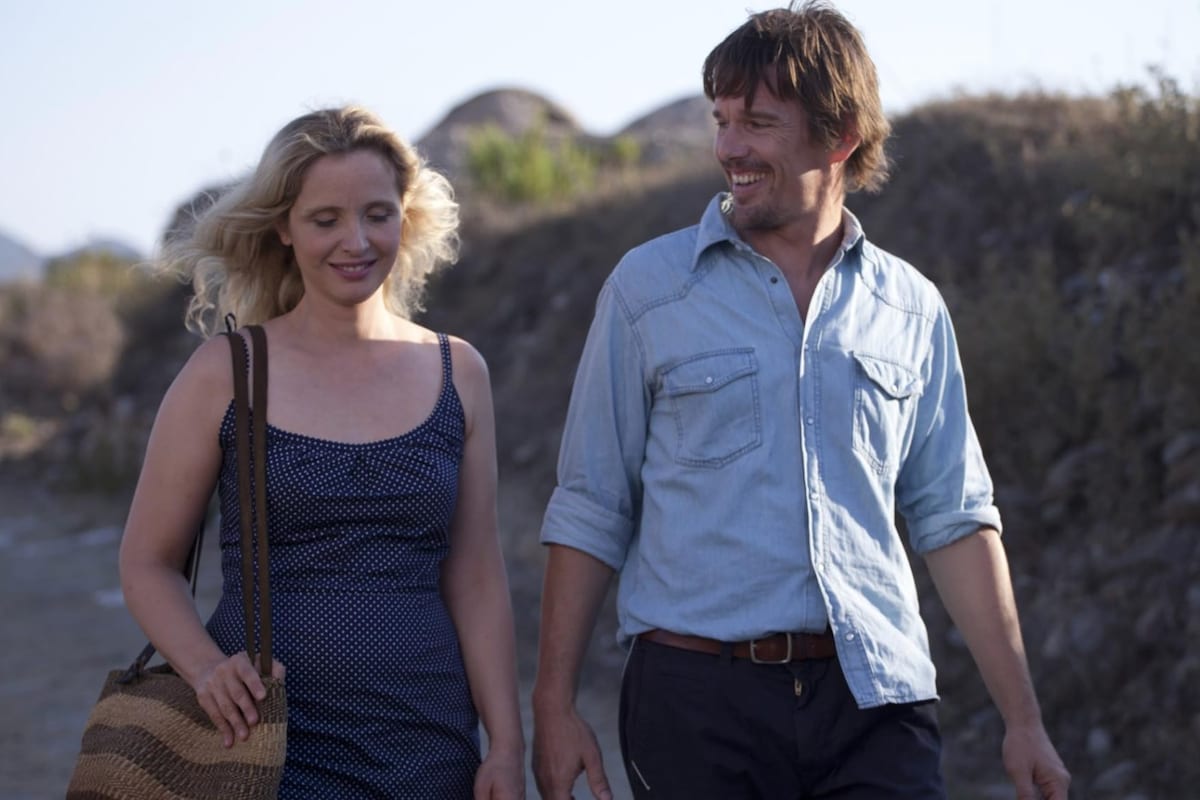
Rewrite
From Joanna Hogg’s Unrelated to Richard Linklater’s Before Midnight, here are ten summer-set films with dreamlike, melancholy moods that will get under your skin
Even when the sun is shining, the air is warm, and we have every reason to be cheery, cinema believes there’s nothing stopping summer from becoming a nest of frustration, discomfort and disappointment. Taking advantage of the contracts between climate and tense, sad inner worlds, summer films often highlight the loss of innocence, how our loved ones let us down, and how distant we feel from our ideal lives. As essayist and filmmaker Durga Chew-Bose wrote, “Every movie about summer is actually a movie about the last summer.”
Here, find ten films that capture real, profound summertime blues to add to your watchlist.
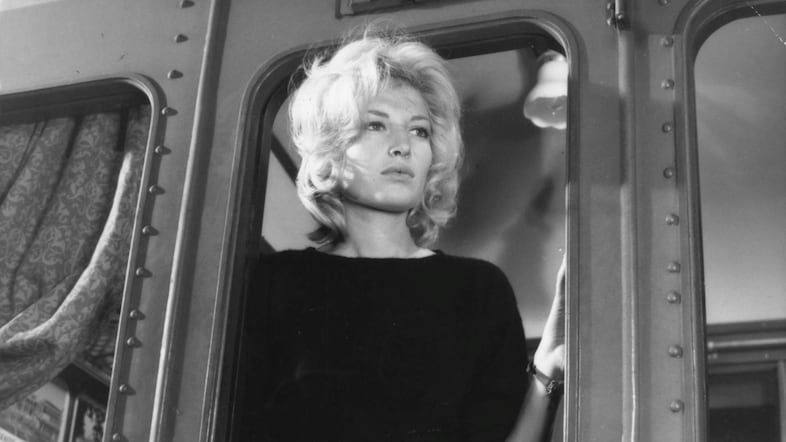
Antonioni is the godfather of films about our empty and alienated modernity, so it’s only fitting to begin our list with a film depicting one of the most depressing holidays in the history of cinema. A band of beautiful Italians chart a celebratory yacht trip even though mild resentment and dissatisfaction linger in each of their relationships, but they are shocked when Anna (Lea Massari) disappears without trace on a rocky island midway through the film. Her best friend (Monica Vitti) and lover (Gabriele Ferzetti) are soon involved in an affair, prompting a conflicted and uneasy third act where Anna’s absence, already an intrusion of horror in the holiday tranquillity, takes on a lingering, haunting quality.
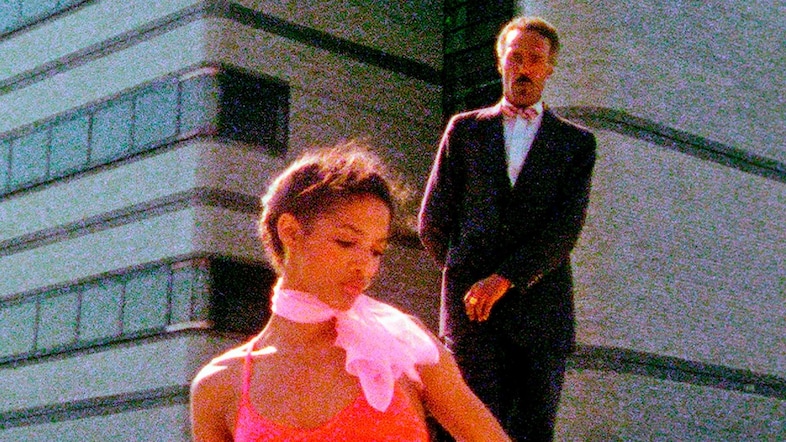
Recently programmed as part of BFI’s landmark Black Debutantes season, this is one of two films directed by poet, playwright and activist Kathleen Collins. It’s a brief but precise drama about Sara (Seret Scott), a sharp academic writer who’s constrained by her loud, arrogant painter husband Victor (Bill Gunn) during a summer in New York state, as Victor makes his wife relocate to a country house to suit his creative needs rather than hers. Losing Ground contrasts Sara’s time spent with a neglectful and insecure husband with a student film she agrees to act in, a dance-filled vaudeville pastiche that becomes a cathartic valve for the disrespect she gets from Victor. The film’s climactic scenes remind us that summer’s melancholy can and will boil over if left unattended.
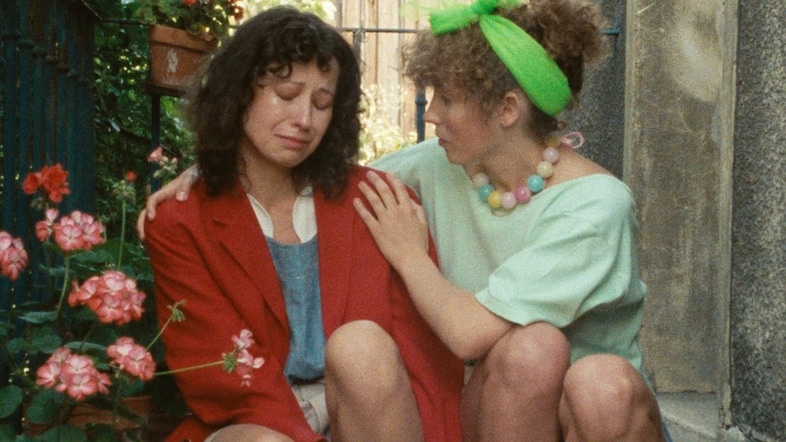
Rohmer’s films capture the excitement and bitterness of the summer months like no other filmmaker – hearing the buzz of cicadas and seeing faces washed in French sunlight primes you for sad, charming tales of cynical lovers and misleading rushes of desire. If you’ve ever spent a holiday – especially a solo one – in a depressive slump, then The Green Ray will have a medicinal effect on you. Delphine (Marie Rivière) spends a lonely summer disaffected and frustrated with the superficiality of discovering friends and lovers, and she resents the limited chances for connection women are offered in society. The film climaxes by cracking open its melancholic fog with one of cinema’s most liberating sunset-watching scenes.
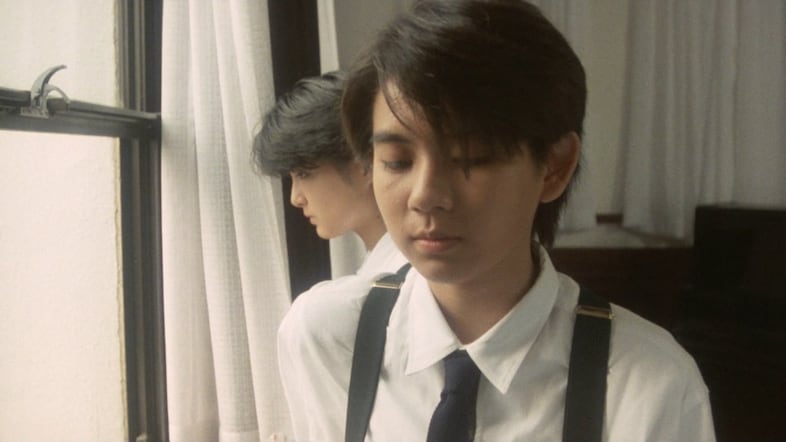
Set in a retro-futuristic boarding school filled with hallmarks of the gothic – billowing white curtains, dark lonely halls lit by gas lamps – Summer Vacation 1999 is a dreamlike and melancholic ghost story about four teenage boys spending their summer in their empty school, each of them uniquely affected by the recent suicide of a classmate. Based on a 1974 shōnen-ai manga (a genre focusing on male emotional and romantic bonds, intended for a female audience) which was in turn inspired by the work of Hermann Hesse, Summer Vacation 1999 ties gothic ambitions to a coming-of-age story about heartbreak among its quartet of young men, all played by female actors in an inspired casting coup by director Shusuke Kaneko.
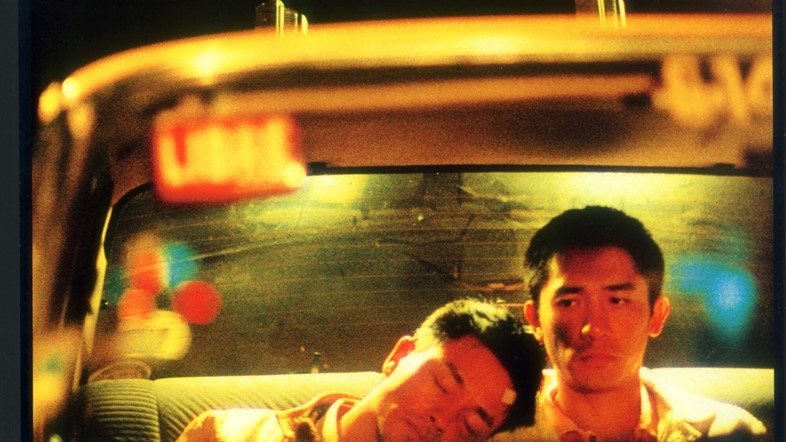
One of the Hong Kong director’s most affecting and arresting films, this queer drama focuses on two lovers, Ho Po-Wing and Lai Yiu-Fai (Leslie Cheung and Tony Leung Chiu-wai) who are stranded in Buenos Aires, and let their tempestuous relationship unfurl in crummy rented rooms, cobbled streets and kitschy bars. As the couple lash out, withhold honesty and feign making up, their estrangement feels more and more inevitable. Wong’s heightened and oversaturated colours underscore how off-kilter and unsatisfying their exotic new location feels – it’s bright and beautiful, but something inside them has altered the way they perceive the world around them. A sterling LGBTQ+ drama that toys with devotion and loneliness in every moment.
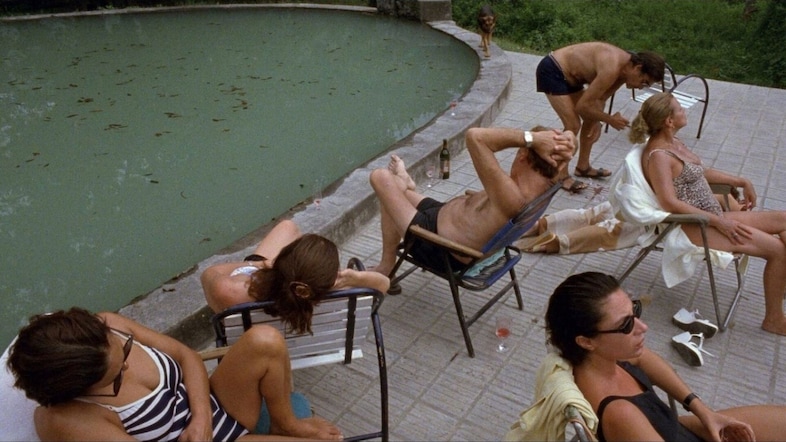
When does melancholy become pure toxicity? Argentine director Lucrecia Martel left a crater with her debut drama La Ciénaga in 2001, a loosely structured and quite upsetting ensemble piece about a bourgeois family spending their summer in a dilapidating estate with a grotty pool surrounded by high mountain plains. The film is filled with commonplace snapshots of an ordinary summer: patio drinks, sweaty naps, idle gossip, retail trips and conversations about school supplies. But Martel shoots with anxiety-inducing precision, emphasising the darkness of rooms and focusing on corners and floors of the middle-class home with an intensity that implies something horrible is about to happen. We’re not sad that summer is ending, we’re dreading what comes next.
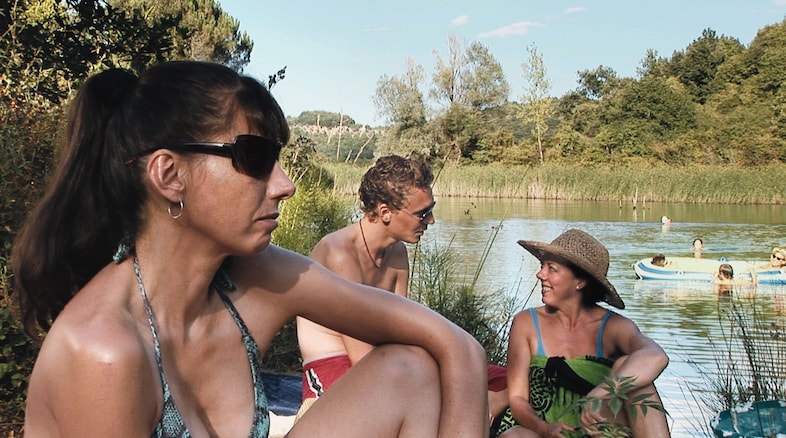
London-born Hogg has spent her career expertly peeling back the layers of narcissism and anxiety of bourgeois Brits. Her feature debut Unrelated is about Anna (Kathryn Worth), a woman who joins her childhood friend Verena (Mary Roscoe) and her family at a lush villa in Tuscany, but she spends the sunny days growing closer with the younger crop of holiday-makers (including a dashing, sun-kissed Tom Hiddleston) rather than the adults her own age – which turns Verena against her. Like most of her dramas, Hogg’s film is subdued but prickly, peppered with moments that disturb the wealthy, comfortable calm, and the picturesque Tuscan homes and vistas are populated with avoidant and immature personalities ready to spoil the summer bliss.
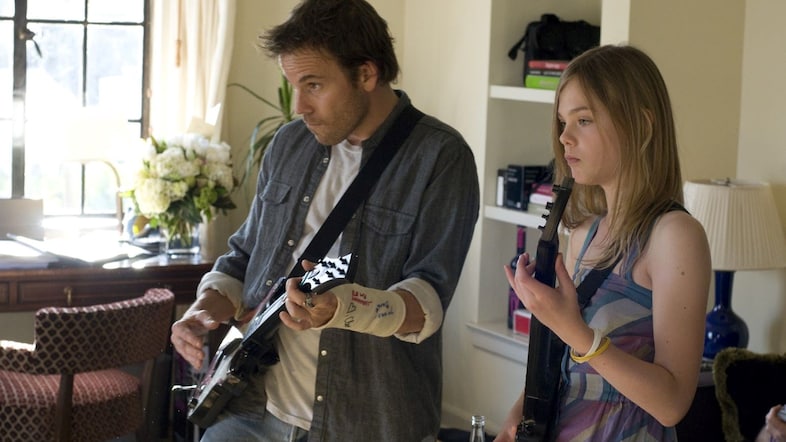
Coppola leans into her most observational and minimalist tendencies for this sweet and quietly devastating drama about Johnny Marco (Stephen Dorff), a newly famous actor languishing in Los Angeles’ Chateau Marmont in the throes of an existential crisis. When his 11-year-old daughter, Cleo (Elle Fanning), turns up at his hotel room door for an indefinite stay, he becomes aware of the toll that his self-loathing and arrested development are having on him. Inspired by Coppola’s experience with a unique celebrity childhood, Somewhere submerges its audience in a sleepy, pampered summer, underlining every moment of a parent disappointing his child and striving, despite inadequacy weighing on him, to use his gilded cage to grow closer to her.
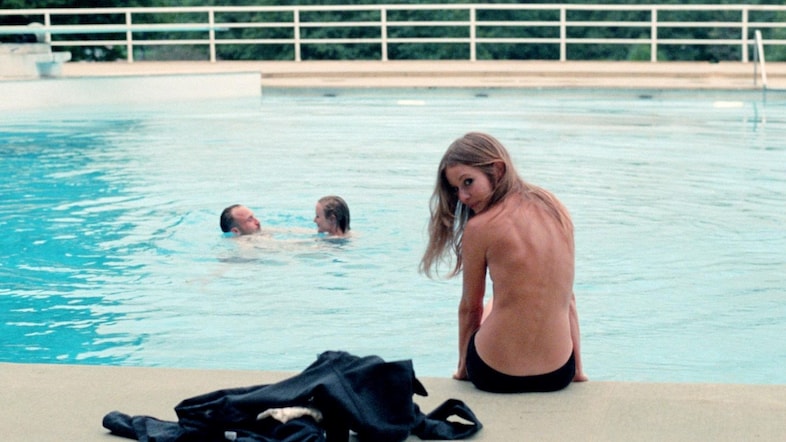
Talk about a Joachim Trier Summer: the Norwegian filmmaker preceded The Worst Person in the World and this year’s Sentimental Value with a drama teeming with melancholy and lost possibility. Set in the dying days of the brightest season, Trier’s riff on Louis Malle’s 1963 drama The Fire Within stars his male muse Anders Danielsen Lie as Anders, a recovering drug addict who is given leave from rehab to visit Oslo for a job interview. He spends August’s waning hours reconnecting with now-distant friends and reflecting on his spiritual isolation. As Anders is confronted with the difficulty of re-entering society and the state of his neglected relationships, the palpable feeling of summer closing reminds him of all the years already behind him.
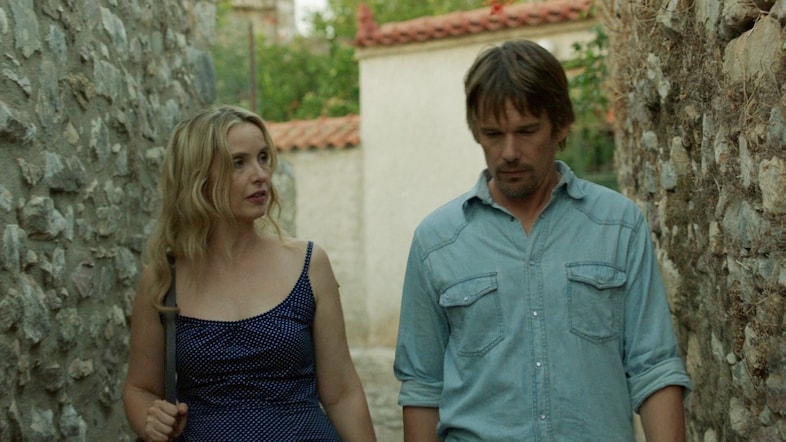
The third chapter in Linklater’s Before trilogy – which charts the international romance between lovers Jesse (Ethan Hawke) and Céline (Julie Delpy) over an 18-year timeline – feels like a reality check on a couple whom the audience needs to be in love forever and ever. Nine years after they upended their lives to be together in Before Sunset (which was nine years after the memorable night in Vienna they shared in Before Sunrise), Before Midnight picks up with Jesse and Céline on a summer holiday in Greece, where reminders of ageing parents and choosing a career over family collide with the fantasy that Linklater and co-writers Hawke and Delpy have invited us into. Before Midnight is like being charmed on the verge of tears.
in HTML format, including tags, to make it appealing and easy to read for Japanese-speaking readers aged 20 to 40 interested in fashion. Organize the content with appropriate headings and subheadings (h1, h2, h3, h4, h5, h6), translating all text, including headings, into Japanese. Retain any existing
tags from
From Joanna Hogg’s Unrelated to Richard Linklater’s Before Midnight, here are ten summer-set films with dreamlike, melancholy moods that will get under your skin
Even when the sun is shining, the air is warm, and we have every reason to be cheery, cinema believes there’s nothing stopping summer from becoming a nest of frustration, discomfort and disappointment. Taking advantage of the contracts between climate and tense, sad inner worlds, summer films often highlight the loss of innocence, how our loved ones let us down, and how distant we feel from our ideal lives. As essayist and filmmaker Durga Chew-Bose wrote, “Every movie about summer is actually a movie about the last summer.”
Here, find ten films that capture real, profound summertime blues to add to your watchlist.

Antonioni is the godfather of films about our empty and alienated modernity, so it’s only fitting to begin our list with a film depicting one of the most depressing holidays in the history of cinema. A band of beautiful Italians chart a celebratory yacht trip even though mild resentment and dissatisfaction linger in each of their relationships, but they are shocked when Anna (Lea Massari) disappears without trace on a rocky island midway through the film. Her best friend (Monica Vitti) and lover (Gabriele Ferzetti) are soon involved in an affair, prompting a conflicted and uneasy third act where Anna’s absence, already an intrusion of horror in the holiday tranquillity, takes on a lingering, haunting quality.

Recently programmed as part of BFI’s landmark Black Debutantes season, this is one of two films directed by poet, playwright and activist Kathleen Collins. It’s a brief but precise drama about Sara (Seret Scott), a sharp academic writer who’s constrained by her loud, arrogant painter husband Victor (Bill Gunn) during a summer in New York state, as Victor makes his wife relocate to a country house to suit his creative needs rather than hers. Losing Ground contrasts Sara’s time spent with a neglectful and insecure husband with a student film she agrees to act in, a dance-filled vaudeville pastiche that becomes a cathartic valve for the disrespect she gets from Victor. The film’s climactic scenes remind us that summer’s melancholy can and will boil over if left unattended.

Rohmer’s films capture the excitement and bitterness of the summer months like no other filmmaker – hearing the buzz of cicadas and seeing faces washed in French sunlight primes you for sad, charming tales of cynical lovers and misleading rushes of desire. If you’ve ever spent a holiday – especially a solo one – in a depressive slump, then The Green Ray will have a medicinal effect on you. Delphine (Marie Rivière) spends a lonely summer disaffected and frustrated with the superficiality of discovering friends and lovers, and she resents the limited chances for connection women are offered in society. The film climaxes by cracking open its melancholic fog with one of cinema’s most liberating sunset-watching scenes.

Set in a retro-futuristic boarding school filled with hallmarks of the gothic – billowing white curtains, dark lonely halls lit by gas lamps – Summer Vacation 1999 is a dreamlike and melancholic ghost story about four teenage boys spending their summer in their empty school, each of them uniquely affected by the recent suicide of a classmate. Based on a 1974 shōnen-ai manga (a genre focusing on male emotional and romantic bonds, intended for a female audience) which was in turn inspired by the work of Hermann Hesse, Summer Vacation 1999 ties gothic ambitions to a coming-of-age story about heartbreak among its quartet of young men, all played by female actors in an inspired casting coup by director Shusuke Kaneko.

One of the Hong Kong director’s most affecting and arresting films, this queer drama focuses on two lovers, Ho Po-Wing and Lai Yiu-Fai (Leslie Cheung and Tony Leung Chiu-wai) who are stranded in Buenos Aires, and let their tempestuous relationship unfurl in crummy rented rooms, cobbled streets and kitschy bars. As the couple lash out, withhold honesty and feign making up, their estrangement feels more and more inevitable. Wong’s heightened and oversaturated colours underscore how off-kilter and unsatisfying their exotic new location feels – it’s bright and beautiful, but something inside them has altered the way they perceive the world around them. A sterling LGBTQ+ drama that toys with devotion and loneliness in every moment.

When does melancholy become pure toxicity? Argentine director Lucrecia Martel left a crater with her debut drama La Ciénaga in 2001, a loosely structured and quite upsetting ensemble piece about a bourgeois family spending their summer in a dilapidating estate with a grotty pool surrounded by high mountain plains. The film is filled with commonplace snapshots of an ordinary summer: patio drinks, sweaty naps, idle gossip, retail trips and conversations about school supplies. But Martel shoots with anxiety-inducing precision, emphasising the darkness of rooms and focusing on corners and floors of the middle-class home with an intensity that implies something horrible is about to happen. We’re not sad that summer is ending, we’re dreading what comes next.

London-born Hogg has spent her career expertly peeling back the layers of narcissism and anxiety of bourgeois Brits. Her feature debut Unrelated is about Anna (Kathryn Worth), a woman who joins her childhood friend Verena (Mary Roscoe) and her family at a lush villa in Tuscany, but she spends the sunny days growing closer with the younger crop of holiday-makers (including a dashing, sun-kissed Tom Hiddleston) rather than the adults her own age – which turns Verena against her. Like most of her dramas, Hogg’s film is subdued but prickly, peppered with moments that disturb the wealthy, comfortable calm, and the picturesque Tuscan homes and vistas are populated with avoidant and immature personalities ready to spoil the summer bliss.

Coppola leans into her most observational and minimalist tendencies for this sweet and quietly devastating drama about Johnny Marco (Stephen Dorff), a newly famous actor languishing in Los Angeles’ Chateau Marmont in the throes of an existential crisis. When his 11-year-old daughter, Cleo (Elle Fanning), turns up at his hotel room door for an indefinite stay, he becomes aware of the toll that his self-loathing and arrested development are having on him. Inspired by Coppola’s experience with a unique celebrity childhood, Somewhere submerges its audience in a sleepy, pampered summer, underlining every moment of a parent disappointing his child and striving, despite inadequacy weighing on him, to use his gilded cage to grow closer to her.

Talk about a Joachim Trier Summer: the Norwegian filmmaker preceded The Worst Person in the World and this year’s Sentimental Value with a drama teeming with melancholy and lost possibility. Set in the dying days of the brightest season, Trier’s riff on Louis Malle’s 1963 drama The Fire Within stars his male muse Anders Danielsen Lie as Anders, a recovering drug addict who is given leave from rehab to visit Oslo for a job interview. He spends August’s waning hours reconnecting with now-distant friends and reflecting on his spiritual isolation. As Anders is confronted with the difficulty of re-entering society and the state of his neglected relationships, the palpable feeling of summer closing reminds him of all the years already behind him.

The third chapter in Linklater’s Before trilogy – which charts the international romance between lovers Jesse (Ethan Hawke) and Céline (Julie Delpy) over an 18-year timeline – feels like a reality check on a couple whom the audience needs to be in love forever and ever. Nine years after they upended their lives to be together in Before Sunset (which was nine years after the memorable night in Vienna they shared in Before Sunrise), Before Midnight picks up with Jesse and Céline on a summer holiday in Greece, where reminders of ageing parents and choosing a career over family collide with the fantasy that Linklater and co-writers Hawke and Delpy have invited us into. Before Midnight is like being charmed on the verge of tears.
and integrate them seamlessly into the new content without adding new tags. Ensure the new content is fashion-related, written entirely in Japanese, and approximately 1500 words. Conclude with a “結論” section and a well-formatted “よくある質問” section. Avoid including an introduction or a note explaining the process.


